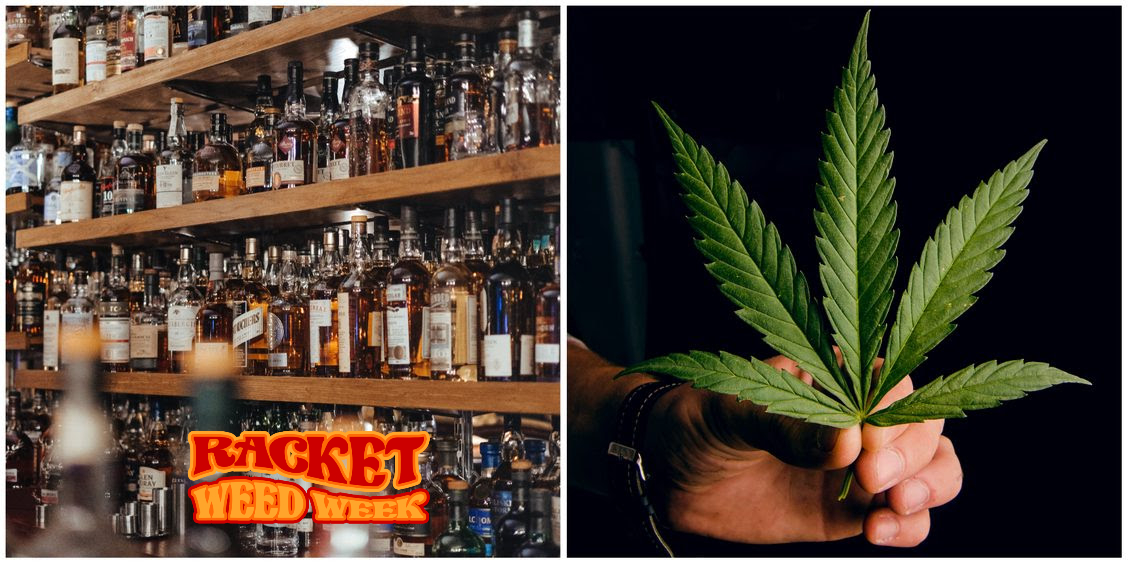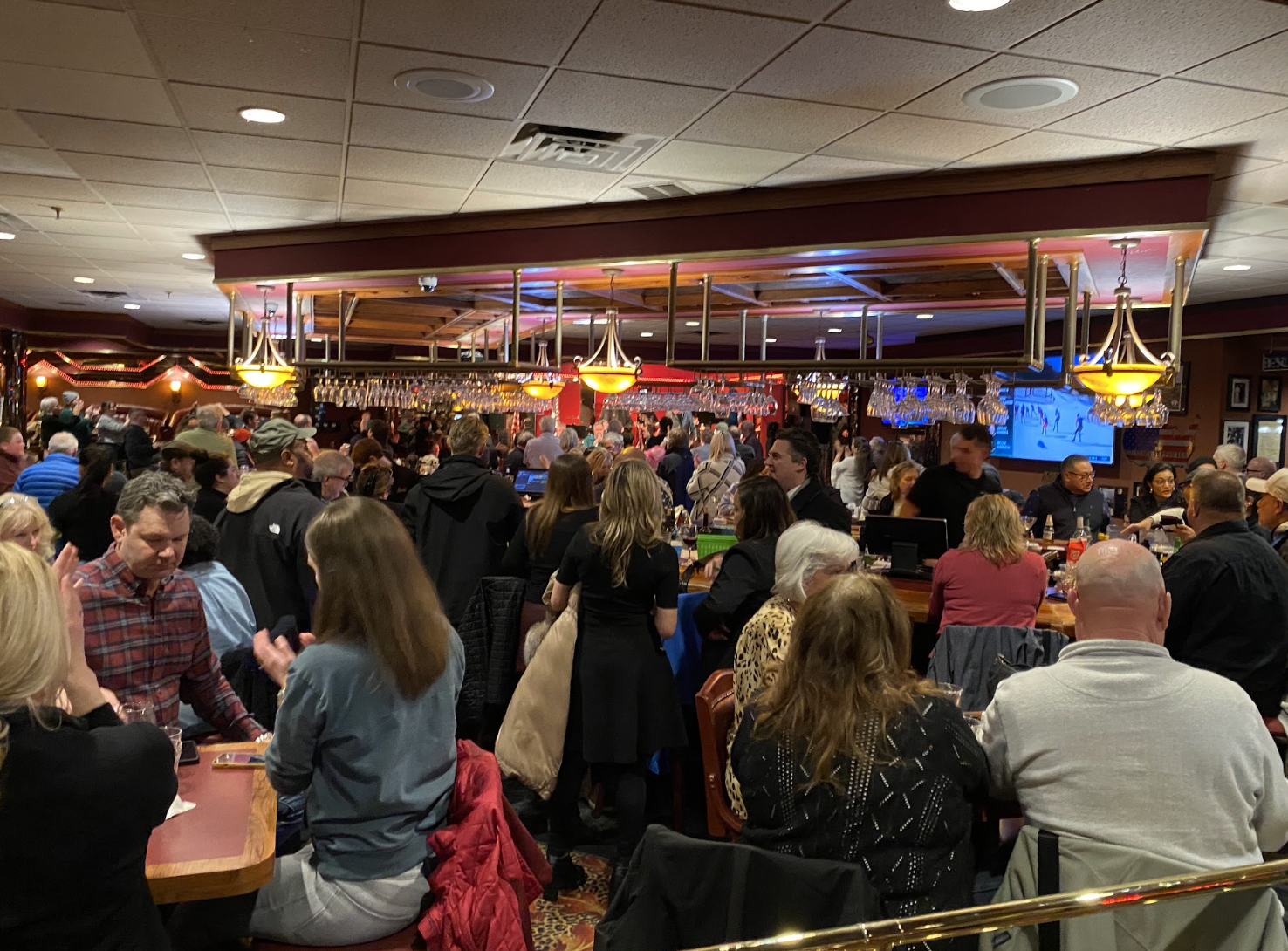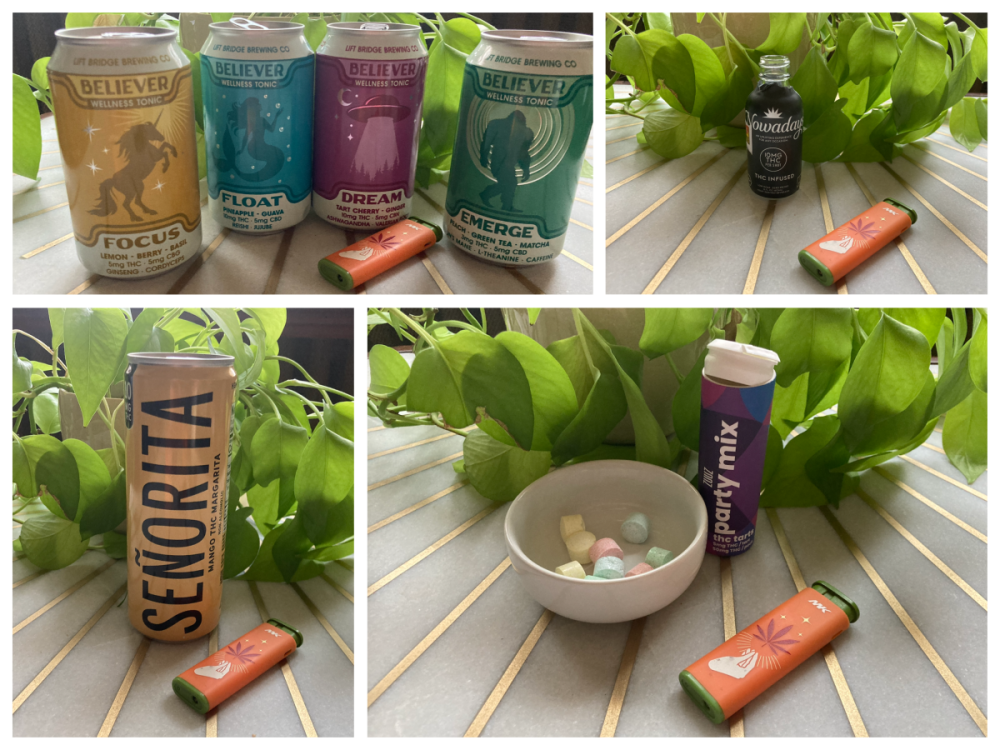Alcohol was hard to come by in Iraq, and that made the one night Roy and his buddies smuggled some booze onto the base a special occasion. “It was a fun, sneaky thing that I was taking part in,” recalls the south Minneapolis veteran, who hardly anticipated the role alcohol would later play in his life. After all, he never even touched the stuff till he was 21.
When Roy got back from Iraq in 2007 after two years overseas, things changed. “After my deployment ended, alcohol started taking over my life,” he says. He entered the debilitating cycle of periodic sobriety followed by relapse from which so many problem drinkers have struggled to free themselves. “I went for treatment at the VA in 2018, stayed sober for about two years, then I got divorced and started drinking again.” During the early stages of the pandemic, he entered a relapse prevention program. Nothing seemed to work.
Then came Minnesota’s recent backdoor legalization of THC products. Weed had never been Roy’s drug of choice. “I didn’t like the smell on my clothes, and it gave me too much of a rush too soon,” he says. But gummies offered a potential alternative to his alcohol dependency, as he saw it, and now, rather than drinking, he consumes “half a gummy just a couple times a week.” He’s happy with the change. “It does everything that alcohol claims to do without the hangover. And unlike alcohol, I don’t need it.”
Though Roy hasn’t had a drink for about three weeks now, his sobriety isn’t quite the kind endorsed in 12-step meetings or at treatment centers. Substituting weed for booze is nothing new—for years, addicts and alcoholics have tried to kick their habits by substituting one high for another. Some have sworn the change saved their lives; others have dismissed the practice as “marijuana maintenance,” a kind of sham sobriety. But with the growth of cannabis legalization nationwide and the increased availability of THC-infused products on the market, celebrities and influencers have given the old method a trendy new brand name: “California sober.”
As cannabis use has become more socially acceptable, and at least quasi-legal, definitions of sobriety and recovery are changing—even here in the Land of 10,000 Treatment Centers. With Minnesota’s current surprise experiment in THC legalization, the time seemed right to reach out to Minnesotans who were attempting different paths toward managing their relationship with mood-altering substances.
A little biographical aside seems appropriate here: I’ve been sober for over 24 years, and 12-step work helped me quit drinking even though I’m no longer active in any program. But I never dug the high I got from weed to begin with, so I approach this topic as a fairly neutral observer, equally skeptical of shortcuts to recovery and the universal applicability of the methods of Alcoholics Anonymous.
When it comes to recovery, everyone has an opinion. Hardcore 12-steppers and experts in the addiction treatment field tend to be skeptical of weed-aided alcohol abstention; folks who’ve been disappointed in traditional methods for keeping clean, and brands with new products to peddle, tend to be more hopeful. It’s impossible to say how “successful” these cannabis users are, because their relationships with drugs and alcohol and their ultimate goals vary so widely. (If the rate of “success” in recovery is usually measured in preventing relapse, what does that mean when you’ve rejected the abstinence model?) So rather than cosigning the decisions of the people I spoke with or second-guessing their decisions, I’ve chosen to simply share their perspectives, to offer a glimpse of our changing relationship with drug use and abuse.
Oh, and I changed everyone’s name because some of this shit is still technically illegal.
“Last week I saw They Might Be Giants at First Ave. If that show happened a year ago, when it was originally scheduled, I would have six drinks and run up a $100 tab. Instead, I had three weed drinks and woke up fine the next day.”
For Nate from Summit Hill, the availability of THC-infused seltzers has helped him cut down on his alcohol intake. Like so many people, he started drinking more during the early days of the pandemic. (“It’s a lot easier to drink slowly when you’re drinking socially. A lot less socializing left a lot more free time for my mouth.”) And with a history of alcoholism in his family (none of whom had stayed sober through AA, he says), his guard was up.
“I’ve taken more of a mindfulness approach to drinking and I’ve been phasing it down,” he says. “No disrespect to people who do this, but saying ‘I’m not going to drink today,’ doing Dry October or Dry January... for me that’s still defining your days by your relationship to alcohol. So whenever I tried that, I would fail at those things, or if I succeeded I’d celebrate with a big binge.”
And while some fret about the chaos of unregulated THC products on the market, Nate welcomes the widespread availability of non-alcoholic options. “A big reason that I was able to make this change is the miraculous lack of regulation that we have here,” he says. “I can walk down the street to the White Squirrel and get a cannabis-infused sage drink whenever I want.”
Nate hasn’t abandoned alcohol entirely. “I don’t think an alcohol-free life is something that I’m aiming for, though that may change. Now I’ll top off a night with a beer and I get the taste that I like and the social effect that I like and none of the after effects.”
“If I didn’t have weed I wouldn’t have quit drinking,” says Jeff in Elliot Park matter-of-factly. “I’m 43 and I’ve used cannabis and alcohol to self-medicate for anxiety for years. Alcohol wasn’t a good way to do that. It wasn’t sustainable for me. I just didn’t feel like I could keep using that as a crutch, I was drinking every day, and I probably wasn’t as good as a person.”
But he wasn’t about to abandon weed for the sake of claiming a strict sobriety. “It’s comforting, good for dealing with life and the shit that’s happening. I like smoking flower. I also vape and I eat edibles. I don’t think it’s taking anything away from how I live.”
While the transition from alcohol to weed was a natural progression for Jeff and Nate, it took a serious health scare for Eric in Itasca County to fully realize how socially acceptable cannabis had become. He was diagnosed with a cancerous brain tumor at the start of the pandemic, and with health services delaying his treatment, his quest for relief from insomnia and headaches, led to an oxycontin OD. That’s when friend after friend began telling him, “Dude, you need to start smoking weed.”
The need for pain management only grew as cancer treatment began. Eric’s frustration with the medical marijuana program—which would have required a two-hour drive to Hibbing, among other inconveniences—leads him to seek his weed from a local dealer. “I was nauseous and weed helped with that,” he says. “It also took my mind off the anxiety of whether I was gonna die.”
Quitting alcohol also gave Eric some perspective on his participation in the culture of heavy drinking in northern Minnesota. “Where I live, social life is the bar and the church,” he says. “Blowing 40 or 50 bucks on drinks for 2 or 3 hours, it was my recreation.” After he quit, he noticed something about himself he hadn’t before. “I was depressed, and I just kinda realized that alcohol was a depressant—took me till I was 40 years old to figure that out.
“Now I just don’t have the physical urge to drink anymore,” he says. “I rarely crack open a beer unless my cousin or my neighbor stops by, and maybe not even then. If you need some kind of drug or alcohol to take the edge, weed is just way less toxic.”
Most of the people who talked to me were following their individually designed paths toward alcohol abstention, in contrast to the collective effort and rules-based program traditionally stressed by 12-step groups and recovery experts. But many were still connected in some ways to online discussion groups. Roy from south Minneapolis, for instance, has been using a program called This Naked Mind, which requires daily check-ins. In many ways, the idea of the recovery group is being reconstituted in the virtual era, with more flexible standards and goals, but applying many of the same principles (identifying with similar problems, sharing experiences with alcohol, and accountability to others) at the core of 12-step recovery.
The internet has played a role in recovery for Matt and Erica, a Whittier couple in their mid-thirties. “One of my main avenues is this subreddit, Dry Alcoholics,” says Jeff, who doesn’t so much get advice from users, but finds their stories a helpful reminder of where he’s been. “I mostly use it as a deterrent, a way of hearing about people’s struggle with relapse,” he says.
At 35, after five years or so of downing a half-liter of vodka a day, and unavailing attempts to curb his drinking, he checked into a detox. He wasn’t sure of what direction to take when he got out, till a conversation nudged him onto his present path. “One of my close friends was like, you can stop drinking, but you can use weed,” he says. “I had kind of a realization that stopping drinking doesn’t mean living sober.”
Erica gets a similar benefit from internet groups. “My parents were both in AA when they met,” she says. “They did the program, they were sober my whole life, and my grandfather was sober. Though I don’t do AA a lot of the support I get is online—going through all of people’s stories and seeing what relates to me.”
Erica quit drinking a couple months after Matt. “I didn’t really think about it like ‘I’m gonna quit alcohol and I’m gonna smoke weed,’” she says. “I didn’t even have a goal for staying sober, or for how long I might. With THC being more available, it just unconsciously happened.”
Both are determined to fully abstain from alcohol. “You have to still be committed to not drinking,” Erica says, while Matt states “I don’t feel like I could have a beer every now and then,”
Here’s how Erica explains the benefits: “Things that have normally upset me don’t anymore. Everything’s clearer. I enjoy my routine more than I ever have before. And I think my antidepressants actually work now.”
Naturally, many sober old-timers who’ve benefited from 12-step programs are skeptical about the new trends—which they tend to view as repackaged versions of old trends. In some cases, that’s because they’ve seen weed use lead to weed dependence and then to relapse. Often, they’ve been down that path themselves.
“The internet has brought a lot of deviant self-recovery cures out in the open,” Steve from St. Louis Park says. “There’s a lot of well-intended bad advice out there, and a lot of people getting high, lying to their sponsors, and going to meetings.”
A long time ago, Steve used to be one of those people. “My crazy story goes back to the ’60s,” he says. “I started trying to quit drinking and the way I did it was just to smoke more and go to AA. I did that for five-and-a-half-years and people in meetings just mostly steered clear of me and were like ‘Whatever floats your boat buddy.’”
“I was enduring a series of small humiliations that was accelerating ‘cause I was getting older,” he says. “People liked me but I did very simple work. My range of activity was very limited. I could listen to music. I could heat up your quesadilla. But I had to set an alarm so I could get to the bank before 5 o’clock.”
Steve’s been completely sober for over 35 years, and despite his skepticism, he acknowledges that everyone’s experiences and needs differ. As he says, “If you can pull that shit off, god bless ya.”
While many of the people I spoke to are fairly early in their weed-softened sobriety, one longer term success did reach out. Across the border in Wisconsin, Craig, 45, has been alcohol-free for six years. “I was probably a functional alcoholic by 17,” he admits, crediting his state’s notorious hard-drinking lifestyle. “When I was 39, I was dopesick, really. I realized ‘I’m not living long like this’ and quit cold turkey.”
But he didn’t quit weed. “I do have social anxiety, and drinking was a way for me to steel my resolve,” he says. “I’ve found that THC takes care of that, while not making me feel like a pile of shit five days a week. And it's cheaper.”
While he hasn’t sought out recovery groups (“I’m not a religious or spiritual person and that just wasn’t for me”), Craig hasn’t plowed forward solely on his own, and he thinks of the process as one of self-discovery rather than a simple change of chemical intake. “I took some inspiration from a few people I knew,” he says. “It’s made me a little more reflective about how I was. You learn how to feel again. Weed doesn’t mask your emotions. It doesn’t numb anything. We call it ‘the attitude adjuster’ around the house.
“I don’t want to sound like a spokesman for NORML,” he jokes. “This is just my experience. It’s not for everyone.There are maybe people who can’t do this, who just replace one drug with the other. It still has to come with changes in lifestyle, things like therapy. But it’s working for me.”






